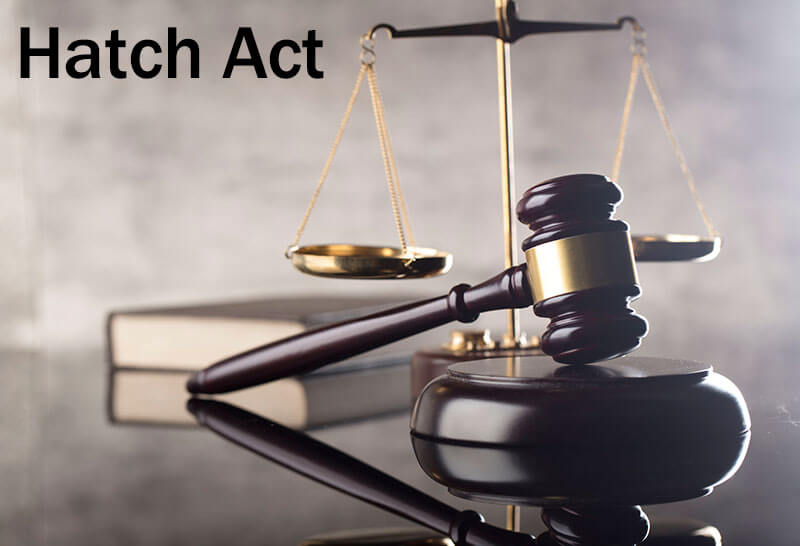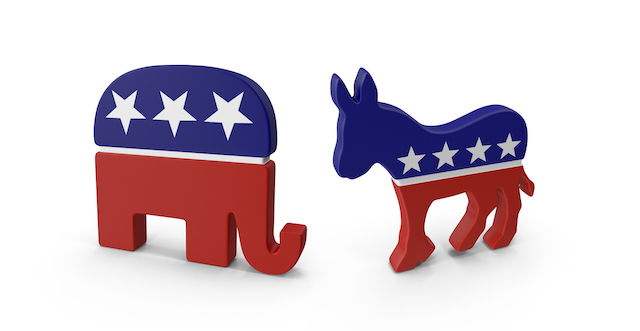National Elections and the Hatch Act
National elections are coming in November. 2022 is not a presidential election year, but human nature and politics will once again intersect. The strong desire for a candidate or party to win an election will mean some people will violate one law or another as they seek an electoral victory.
For some federal workers, this means they will encounter legal problems and possibly face potential removal from the federal workforce. The number of potential Hatch Act violations often go higher when it is a year for national elections.
The Hatch Act was sponsored by Carl Hatch (D-NM). He was a U.S. Senator from 1933-1949.
The Hatch Act became a federal law in 1939. Because of the Hatch Act, a number of federal employees have damaged or even ended their careers.
What Does the Hatch Act Do?
The Hatch Act limits political activity of federal employees, and some state, District of Columbia, and local government employees who work in connection with federally funded programs.
The purpose of the law is to ensure federal programs are administered in a nonpartisan fashion, to protect federal employees from political coercion in the workplace, and to ensure federal employees are promoted based on merit instead of political affiliation or allegiance to a candidate or political party.
Enthusiasm for a candidate or an issue will overcome individuals who never saw, never read about, or do not remember the periodic announcements issued regarding the Hatch Act and the impact it can have on a federal employee.
The most critical portions of the law are found in 5 U.S. Code § 7323 and § 7324. The Hatch Act means that a federal employee may not “use his official authority or influence for the purpose of interfering with or affecting the result of an election.”
The reality is the Hatch Act is more often enforced against career federal employees and not senior political appointees.
Of course, in some cases, a person knew about the restrictions on political activity but ignored the potential consequences. Perhaps it seemed like a good idea to some federal employees while:
- posting their political beliefs while on duty,
- announcing a fundraiser for a candidate while on duty,
- telling a political “joke” while on duty,
- delivering a political chant to members of the public calling a federal agency,
- running for public office and using the agency logo in campaign literature or
- advocating the “Obama Shuffle” (among other activities).
Latest Examples of Hatch Act Violations
The Office of Special Counsel (OSC) is instructed by law to issue a written complaint with its determination of a Hatch Act violation to the employee and the Merit Systems Protection Board (MSPB). It is then up to the MSPB to take appropriate action which may include dismissing the allegations, or in cases where it finds a violation, imposing disciplinary action. In the latter case, the employee has the right to seek a review of the MSPB decision in the U.S. Court of Appeals for the Federal Circuit.
The OSC has recently issued a press release announcing settlement agreements with three federal employees who violated the Hatch Act. These summaries are taken from this press release.
Postal Service (USPS) Employee Resigns After Hatch Act Violation
OSC filed a complaint for disciplinary action with the MSPB charging a rural mail carrier in California for violating three provisions of the Hatch Act. In August 2020, the carrier intentionally removed and discarded 66 pieces of presorted deliverable mail intended for delivery on her route because the pieces were sent by a political party or the campaign of a candidate for partisan political office.
According to the complaint, the carrier placed the mail in an undeliverable mail bin from which it would have been thrown away. In this instance, an attentive employee at the Post Office noticed an unusual quantity of political mail in the bin and alerted a postmaster.
In a settlement agreement, the carrier admitted that OSC would have been able to prove that she violated three provisions of the Hatch Act—the prohibitions on engaging in political activity while on duty or in the federal workplace and the prohibition on using one’s official authority to interfere with or affect the results of an election. The carrier agreed to resign from USPS and accept a one-year debarment from federal employment as a penalty for violating the Hatch Act.
Department of Veterans Affairs (VA) Wins Election and Then Resigns
A Department of Veterans Affairs employee in Pennsylvania ran in the 2021 election for township commissioner, a partisan political office. The employee did not actively campaign in either the primary or general election. She won the election but declined to accept the office after being warned by OSC that her candidacy violated the Hatch Act. The case was settled with a formal letter of reprimand.
Defense Information Systems Agency (DISA) Employee Suspended
A DISA employee posted 12 partisan political Facebook messages while at work that were directed at the success or failure of political parties and/or candidates for partisan political office. The activity took place over a one-year period, between May 2020 and May 2021. The case settled for a three-day unpaid suspension.
Summary
It is easy for some people to conclude their actions are justified and will not result in potential disciplinary action or removal.
America has political divisions today that probably rival those of the 1850’s. One big difference is that communication is now instantaneous. One person can reach a large number of people with a tweet, a posting on the internet, or taking action or making comments that will be widely popular with that person’s circle of friends or internet followers. Making the comment more insulting, outrageous, or inflammatory is a good way to gain more followers—perhaps it may give a person status as an “influencer” on the internet.
Federal employees have a responsibility others do not have. Federal employees during a career are likely to work for both Democrats and Republicans.
Your action as a federal employee may be interpreted as using “official authority or influence for the purpose of interfering with or affecting the result of an election.” Your personal opinion or justification about your intent or whether you actually interfered with or affected the result of an election is not relevant.
Ask yourself how you will react to the possible impact on your life if your actions result in a Hatch Act violation. Will your potential income as an “influencer” on the internet make up for losing your federal job or damaging your future as a federal employee?





